Every successful person was inspired by at least one other successful person. We asked our members who inspired them – and got great answers!
[fusebox_track_player url=”https://traffic.libsyn.com/secure/aviationmarketing/Discussion_-_Who_Inspired_You_.mp3″ background=”default” social_linkedin=”true” ]
Paula Williams:
All right, so welcome to this week’s episode. We are thrilled to have John and Jeremy with us to talk about Who Inspired Us Most and the most interesting people that you know became that way because of the most interesting people that they know, right? So anyway we’re just going to do introductions real quick and then talk about who inspired us. So anyway, John, you go first.
John Williams, I do the back end stuff for Paula and ABCI …
Paula Williams:
And some front end stuff, like this podcast.
John Williams:
Finances and all the stuff it takes, IT, infrastructure, building a studio, so …
Paula Williams:
Yey, right?
John Williams:
But it’s her company and I work for her and I love it.
Paula Williams:
Why thank you. Aw, and Jeremy.
Jeremy Cox:
I am JetValuesJeremy, Jeremy Cox. I appraise aircraft for a living and I’m pretty much an Aviation Geek. I love airplanes. I love delving into the history of airplanes and learning about their development over time and to assign values to that development, the provenance, the peculiarities, the upgrades, changes, what have you. My true specialty, appraising aircraft that are not covered by the price guides, but I also appraise anything, whether it’s in the price guide or not, as long as it’s got wings or rotor blades.
Paula Williams:
So probably the weirder it is, the less likely the book is to be accurate, right?
John Williams:
Now wait a minute, you said the wings, the rotor blades. There’s a new device out, it’s called a Speeder. Have you seen it?
Jeremy Cox:
No, I haven’t. No … Well, I may have but I didn’t realize maybe it was the name of it. What is it?
John Williams:
It’s the Speeder, just like in Star Wars, right?
Jeremy Cox:
Really?
John Williams:
Yeah, you can buy a [inaudible 00:02:25] for $10,000, you’ve got five turbines underneath it, computer controlled, it’ll do 400 knots, got a range of a half hour, one person.
Jeremy Cox:
I don’t think I’m a take it for that, even if I have [crosstalk 00:02:39]. I need a full body airbag that works at 400 knots.
John Williams:
Right, right.
Paula Williams:
I’m not getting on that thing. That’s fantastic.
John Williams:
Yeah, but you may be called to appraise one in the future, that’s [crosstalk 00:02:54].
Jeremy Cox:
Well, that, and that’s true, and I always tell people when I used to buy and sell airplanes, I always said, “Do not buy below serial number 10 and don’t be the first.” Like, for instance, if there was ever a biplane mod offered for a Hawker 800XPI or something, don’t do it. Don’t be the first. If there’s more than 20 of them out there that have the biplane mod on the Hawker, then you might consider doing it …
John Williams:
Yeah, that’s right.
Jeremy Cox:
But otherwise, below serial number 10, don’t do it and anything that’s a one off, don’t do it.
Paula Williams:
Right? So, Larry, welcome, we’re glad you’re here.
Larry Hinebaugh:
Hi, thanks, Paula.
Paula Williams:
Yeah, we’re just in the middle of intros and John did his and Jeremy did his, so if you want to go next and I’ll bring up the tail end, just on the intro and what you do.
Larry Hinebaugh:
Okay, okay. So I apologize for being a little late, I was busy uploading some stuff to the digital logbook stuff. So I got caught up in that, missed my window slightly, but anyway … So what I am doing here is representing Business Aircraft Records, which is the nonprofit, as you know, that we started to improve record keeping in our industry, to take it from where it is now, which is like the black sheep of the business aviation industry and try to bring it into the fold and make it part of the wonderful experience of owning an aircraft. We just started that, we’re launching that and so far things are going well. The website’s really coming along nicely, by the way, so if you haven’t seen it for a while, you should go look at it.
Paula Williams:
I should, fantastic. Well, that’s great and we appreciate you being here and everyone else, so this is always a lot of fun for me. I’m Paula Williams and I run ABCI, which is the Aviation Marketing Company, and our latest project is a Aviation Sales Challenge which is just finishing up and then we’re launching our Aviation Sales Professional program, starting August third, so that’s the AviationSalesTraining.com.
Yeah, anyway, we’re really glad everyone’s here and today, this was actually Jeremy’s idea, which I think was a really good one, to talk about who inspired you most. We wanted to do some discussions with the coolest people we know about how they got the way they are.
John Williams:
Well, the gentleman that I … Anyway, he grew up as the youngest of 10 kids, didn’t know his dad, and therefore everybody in the family worked. Whatever pennies they made, they gave to mom and she raised them and joined the Navy when he was 15 and one of his favorite stories was that when his 16th birthday rolled around, somehow, he was told to report to the captain of the boat. And the captain told him, he says, “I understand it’s your birthday.” He say, “Yes, sir.” He said, “How old are you?” And he looked at him and said, “16.” He says, “You can’t join the Navy …” This is back in the war, right? “You can’t join the Navy until you’re 16.” He said, “Yes, sir.” He said, “Now get out of here and don’t do that again.”
Paula Williams:
I don’t think he will.
John Williams:
And then he grew up from that and he only had … Obviously, in the Navy … He only had a sub-high school education and got out of that, he got a GED, started working for sweeping floors at a Ford dealership in Oklahoma City for $25 a month. He went on to become the Worldwide Manager for an oil field service company, number two in that. After 35 years at the same company. Quite an inspiration for me, and he told me, he says, “You can’t do that anymore. He says, “Use companies as stepping stone.” And so I did all that growing up, somewhat in his footsteps, and then here I am, starting a company. He’d never done that. So that’s the guy, oh, the guy’s name was Glen, he was my dad.
Paula Williams:
Glen Williams.
John Williams:
Yup.
Paula Williams:
So he didn’t know his dad because his dad was killed, right? I mean if I …
John Williams:
No, he was a clerk in a grocery store. He got bit by a black widow spider and died.
Larry Hinebaugh:
Wow.
Paula Williams:
So now we’re all afraid of bananas.
John Williams:
No, not really, but anyway …
Paula Williams:
Bunches of bananas could be hiding God knows what, right?
John Williams:
Well, but quite an inspiration for me, I tell you.
Mickey Gamonal:
Nice, and sorry I missed it … and so he was, he ran a company?
John Williams:
Oh, no, no, no, he started … He never knew his dad, he grew up, he was the youngest of 10, and everybody donated the pennies they made back in the day and then he joined the Navy when he was 15. Got a GED when he got out, worked for Ford, $25 a month, and went on to become Worldwide Service Manager for a oil field service company who was international in scope and he spent 35 years there. And told me, he said, “You can’t do that anymore. Use companies as stepping stones along the way.” Of course, he had never started a business so that was where I jumped off and tried some things.
Mickey Gamonal:
Thank you.
Paula Williams:
It’s interesting that company loyalty used to be such a thing and it’s not anymore, but I mean, that was one of his values and it was perfect for the time, but I don’t know that it works now.
John Williams:
Well, company loyalty does, but not many … It has to work both ways.
Paula Williams:
Exactly.
John Williams:
It did back then.
Paula Williams:
Right, absolutely. Oh, that’s cool. I did not know some of that.
John Williams:
Can always be things [inaudible 00:09:32] that you didn’t know about that.
Paula Williams:
Well, I’d met him a few times, but I did not know a lot of that about him. I know he used to fix everything. Like we’d go to the Taco Bell and the door would squeak and so he would stop everything and go back to his truck and get his tools and he would fix the door on the Taco Bell. And he just couldn’t walk by something that was broken and not fix it. [crosstalk 00:09:59]
John Williams:
And Taco Bell refused his money, too.
Paula Williams:
He couldn’t buy anything at the Taco Bell, they always bought his food. So he was that kind of guy. Cool, well, Jeremy, do you want to take it from there?
Jeremy Cox:
Sure, absolutely, Paula. Well, I’ve got to say, this is kind of a difficult topic for me, because it …
Paula Williams:
It was your topic.
Jeremy Cox:
Well, I understand, but inspiration, the problem is for me, there are so many people that have been along my path as I move my way through aviation that have provided me with mentorship, provided me with insight, and provided me with knowledge that every single one has been an inspiration to me. It’s difficult, if not impossible to tie it down to a specific person.
I was very fortunate growing up in England as a Apprentice Mechanic, literally, there was a gentleman called Jim Gobert who has long since passed. He spent a lot of time … He was an Australian, expatriate living in the UK and he was in Nigeria a lot for I think Shell or BP, I’m not sure and he was maintaining the oil exploration fleet in Nigeria, and so he gave me massive insight into the basics, the nuts and bolts of being an Aircraft Mechanic, an Aircraft Maintenance Engineer as they call it over there. And in fact, so much so that he would commute to the place where I had my apprenticeship, this little maintenance organization and I grew up in a pig, poultry dairy farm and we actually had a … You’d call it a caravan over there, but a trailer, what is known here, in our yard, stockyard and it was it was all concreted and everything, but it was a decent trailer.
We let him live there rent free during the week and he’d go home for the weekends to his wife, but he would let me come out to the caravan two or three times an evening, two or three times a week in the evenings and we’d spend a couple of hours and he’d teach me what I needed to know to be an AMP mechanic basically. So he’s probably spent the most time with me over my life span, but goodness. I mean, there’s just so many people that have provided assistance and inspiration that it’s near impossible. I probably would have a list, literally, that would have at least 50 people on there. Truly, at least 50 people, and I know it’s human to self exaggerate and you come up and you say, “Oh, there’s a 100 people …” In fact, my late wife used to say, “That’s a 100 years ago.” It’s like, “It’s not a 100 years ago.”
It’s exaggeration, but the fact is, I truly could come up with a list of names that at least amounts to 50 people. So that’s why it’s difficult for me, because I think the true response that I’m compelled to provide on this webinar, this little chat is I try and go out of my way to mentor other people and really the question is what qualities make up the best type of mentor. And I think truly, it’s somebody that is just willing to spend the time without disruption or interruptions, just to sit down and chat, because that’s where the information is. You don’t need visual aids, you don’t need video. You don’t need any of that stuff. You just need to sit down with a cup of coffee, a cup of tea or a beer and just hang out, because hanging out with somebody that has significant knowledge and experience be outside of your realm is such a massive benefit to you.
And it may seem like a rambling, as I am now, I’m rambling, but the truth is it’s all about providing a slice of time to somebody just to chat. And that’s what it was down to, so that’s my piece. Thank you, Paula.
John Williams:
Well, but you know what, I agree with a lot of that because unbeknownst to most people is that when Dad had to come home every night and when I got home after doing whatever I was doing, he would … and it got to be a thing. We lived in Las Vegas. He would go outside, because there was no AC in the house. It’s too damned hot and he’d sit out there, stand out there, look into the sky sending the breeze and I’d go out there and we’d end up talking till past midnight, almost every night. And finally, my mom said, “I know you two enjoy this,” she did it privately, said, “But you have to realize, he has to go work at five in the morning so that only gives him from the time you stop talking till four to get up.” I said, “Okay.” So I started backing off that, but there was a lot of time that exactly what you said, meant a lot to me.
Paula Williams:
Right, and such a gift to just spend time with someone and it doesn’t happen often enough nowadays. It’s not structured.
Jeremy Cox:
Well, so it’s a lost art, just like sitting down and writing a letter to somebody. I mean it’s we’ve gone from writing letters to email, going to a greeting card store and buying a card and sending a card to somebody to doing e-cards and it’s really a lost art. Because we as humans haven’t changed, we’ve just become lazy and adaptive to a modern society that eliminates some of the nice things, but when you actually get a card or you get a letter or somebody takes the time to sit down and have a conversation with you, without distraction, and without any outside modification or motivation or really there’s no underlying reason behind it, other than just to give you the benefit of their time. That’s truly magical moments in this day and age.
Paula Williams:
Yeah.
Jeremy Cox:
And I don’t know why we’ve lost that. I just don’t understand it.
Larry Hinebaugh:
First thing, Jeremy, I think it’s not so much a matter of laziness these days. I think it’s a matter that people are busy all the time. The computer and all the technology hasn’t made our life less busy, it’s made it more busy so I think a person’s time is like one of the most precious things they can give you. A lot of people have money, they have technology, they have this widget, they have whatever, but time is precious, so it means a lot.
Jeremy Cox:
I agree. I agree.
Mickey Gamonal:
Yeah, I’m with you on that, Larry. I don’t think … and you said like people have gotten lazy. I think people have gotten lazy in some regard, but I think people were always lazy. We’re always looking for efficiencies, right? Like, if you can do something in half the time, why wouldn’t you do it, right? So that’s I think as we can do more and more, we get more and more tools to capitalize on our time, suddenly we have less and less time, right? It’s like asking questions leads to more questions. It’s finding efficiencies, leads to more deficiencies. There’s never any time because we’re so good at everything now that we can’t do shit, right? That’s the most ridiculous paradox of it all.
Go ahead.
Larry Hinebaugh:
I have a funny story. In 1984, when I was in a master’s program, in my Marketing Class, we had a guy come in from IBM and he said, “You know, there’s something coming on the world that’s going to be so awesome. It’s called the personal computer and it’s going to save everybody so much time.” He said, “Believe it or not, they’ll have these things where they’ll fit into a briefcase, they’ll sit on your desk, everybody will have one.” He said, “Here’s the best thing about it, the computer is so efficient at doing things that the average work week is going to drop from what it is now, 40 hours to 30 hours, because we’ll be so efficient.”
Mickey Gamonal:
Nope.
Larry Hinebaugh:
The missing thing he didn’t see coming was that because we’ve been able to do it ourselves, because of the computer, we’ve eliminated all the support staff and everything we used to have. So now we’re spending our time doing it.
Mickey Gamonal:
Right, and we’re just optimistic by nature, right? We’re just like every new tool is going to be so beneficial. And then it just breaks everything, completely ruins … Cell phones ruin conversation. Cell phones ruin rambling, but it’s a new thing. It really is about accepting, in my mind, it’s about accepting this new tool as some sort of a benefit, because it was created with a benefit in mind, always.
Paula Williams:
With the best intentions.
Mickey Gamonal:
Yeah.
Paula Williams:
And we know where it’s paved with them, right?
Mickey Gamonal:
True that.
Paula Williams:
Right, fantastic. Well, Larry, who inspired you?
Larry Hinebaugh:
Well, when I first saw that question come up, I had the same kind of struggle as you guys are mentioning. I mean there are so many people that inspired me all along the way in different areas and I think anyone that’s just got their eyes open and is listening is going to have inspiration coming at them constantly.
Paula Williams:
Yeah.
Larry Hinebaugh:
So I just tried to break it down and really I think I broke it down to two groups: living and dead. I’m going to say with living the most important person, probably, along the lines of John, how he got started or somebody inspired him at a very young age, wasn’t my dad but it was my first boss out of AMP school, 1976. And I got out of school and I’m all of a sudden working on Lear jets and citations and we had started the first jet shop in Orange County Airport and it was really exciting, but my boss Dan Scanlon, he hired a lot of young people … I was only 19 at that time … and he inspired us all, not only work on the airplane and do a good job, but also to enjoy what you’re doing and see the fun that’s in aviation and the fun on working on airplanes, make it exciting and challenging, wasn’t just the dull humdrum jobs that I’d had while I was pushing myself through AMP school and everything else.
So he really inspired me to look at it a different way and if you look at all the half a dozen of us or so that started under his tutelage in that shop, none of us knew how to really work on airplanes until Dan showed us, but we all turned into DOMs or entrepreneurs or vice presidents. You can take it all back to those roots and say, “Yeah, Dan inspired all of us, I think, to reach out and grab for all we could.” So that was good.
Then the dead guys or the ones … I mean I like these guys all the time. I’m always inspired by people like Winston Churchill and Abraham Lincoln and those kind of guys. What really hit me right now is that I think their perseverance, their inspiration to perseverance is like one of the most important things we can do for ourselves right now in this COVID-19 situation where we’re all locked down, we’re trying to figure out the new way of doing things. We can’t just go do the things we used to do to break the monotony or get inspiration that way. We have to just knuckle down and do it. We have to persevere so those guys, like I said, there’s a whole list of them, but they gave a lot of quotes about how they persevered through some really tough times and it made the difference. So those guys inspire me.
Paula Williams:
This would make COVID look like a nothing, when you think about how they went through Polio and Small Pox and wars and all this, famines. I mean it wasn’t that they couldn’t go get a latte, it’s that they couldn’t go get anything. I mean they literally went without food for periods of time, and people think of hardship nowadays and it really isn’t. It’s really not, so I’m right there with you. That’s cool.
Larry Hinebaugh:
Though, I think the COVID-19 is a lot like the 1918 Spanish flu. I see a lot of parallels in those things so … I was just reading last night, when I was up at like 3:30 in the morning awakening. I was looking on YouTube and seeing the story about the pandemic of 1918 and what they did after that. And of course, after, on the heels of the 1918 pandemic was the Roaring Twenties, so it’ll be nice if we could get back to that point [crosstalk 00:24:06].
Paula Williams:
The Roaring Twenties, yes.
Larry Hinebaugh:
I’d love to do that, to persevere to get to there.
Mickey Gamonal:
There’s that optimism, there’s that optimism I’m talking about. Hell, yeah. Cool. Well, good stuff. Go ahead, I think, mom, if I’m following the order?
Paula Williams:
I think it’s you and I was going to take up the rear, if that’s all right, so didn’t know you were here, but that’s okay, we’re glad you’re here, so …
Mickey Gamonal:
Okay, cool. Yeah, sorry, I was late. I was teaching a lesson, but …
Paula Williams:
Oh, good for you.
Mickey Gamonal:
Yeah, yeah, I think so I’m going to do three. I’m going to try to rifle through them quickly. But I think a lot of inspiration is derived from people you don’t want to be. I had a boss that was just a total jackass and he would, he had cameras in every single room to watch people a 100% of the time and everybody who spoke with him stuttered because he was going to interrupt at you and scream at you and it was ridiculous. That was a major inspiration for what I don’t want to do.
Paula Williams:
Wow.
Mickey Gamonal:
That is absolutely obscene, right? And so from that, I think that you get a ton of inspiration from folks that you don’t want to be. So that makes me keep in mind rule number one, don’t be a dick. Like always, it always is just don’t be a jackass, ever, because there’s no benefit in that, and if you are, you should have the courage to apologize. That really is the most important thing to me.
Paula Williams:
Well, we all have our moments, right?
Mickey Gamonal:
Yeah, exactly. Then I got to shout out my mom. She had me very young. She wrote a book when I was still just a child. She always hustled. So when you’re talking about marketing and sales, she runs her own marketing firm and she’s good at it. She’s good at what she does and the most inspirational part is when someone offers a service that you know helps people, you want to follow in those footsteps. You want to be able to live a life of service to other people. That’s probably the most inspirational for me.
Paula Williams:
Aw.
Mickey Gamonal:
And then third, lastly, lastly is going to be like Mother Teresa. I like the dead people, too. You can learn a ton from dead people, because they don’t talk back, right? You can make them whatever you want them to be in your head and you know some scandal’s not going to come out tomorrow about Mother Teresa doing God knows what. So it’s pretty safe, I think to have dead people in your head as whatever you want them to be and you can derive inspiration from that. So I think those are the three areas that have been inspiring the most.
Jeremy Cox:
I’d like to just take a moment to reinforce what Mickey was saying about be nice to everybody. I short changed for certain my dad. I spent many, many, many hours with my dad, like John, talking with him and he bought and sold heavy earth moving equipment and cranes and other things. His territory was pretty much the entire British Isles and we’re talking ’60s, ’70s, ’80s, ’60s, ’70s, and ’80s, basically, my formative years, and I would spend … If he had a drive up to Scotland or something and we lived out in the southwest part of England and a drive to Scotland, I mean he would drive up to Inverness and do business and drive home the same day and that’s before the marvelous motorway system had been fully established.
And we’re talking probably 1100 mile roundtrip or a 1,000 mile roundtrip in a day with terrible roads, just byroads, but the hours I would spend with him, traveling with him, we talk about everything and anything. But the point I want to introduce from those conversations, I never forget, I got the opportunity to go to some exhibitions with him where he was actually manning a stand with contemporaries and they were marketing their wares and he told me, he would spend time with young people and old people alike. I’d say to dad, “Dad, why you talking to that kid and giving a brochure to that kid?” Or “Why are you talking to that old guy in a wheelchair?” And he said, “You know, son, it’s really important to remember this. Be nice and kind and treat everyone equally, whether they’re very, very young or very, very old, because the young grow up and become something and the old, they will shuffle off but they know a lot of people and they have a lot of influence.”
So you’re absolutely right. You’ve got to treat everybody with the same kind of respect that you’d like to be treated yourself and even if you’re in a situation where you got to be very focused, in a selling situation and your colleagues can conceive the fact that, “Why are you wasting your time?” You’re not wasting your time. You’re still connecting to a bunch of different people, both in the future and from the past. Anyway, sorry, rambling again.
Mickey Gamonal:
I agree. I think that’s right on. Spot on.
Paula Williams:
That’s absolutely cool and I know we’re rattling through this pretty quick but then we’ve got some time to go back through whatever, and then spend some more time on pitches, which is great, so … yeah, I’ve got two people who are like the most opposite people from each other that you could even imagine but of course, there’s a whole bunch of other people.
I was really privileged … and I know privilege is kind of a weird word these days … but I had great parents, I had fantastic teachers. I lucked out in every possible way that a person can luck out, but, yeah, the two people that probably inspired me the most are on this call and they’re more different from each other than anybody I’ve ever met and that’s John and Mickey.
And John is Mr. Organized, Mr. Detailed, Mr. All the I’s have to be dotted and all the T’s have to be crossed and we’re going to do things the right way or we’re not going to do them at all, which is great. And when we met, you guys probably know this, but we worked for competing consulting firms. And so we were competing for the same business at the time, which is kind of awkward and I’d competed with a lot of … There were always men at that time, but always people from different marketing companies and different consulting companies for … it was a financial institution we were working with at the time. And they would throw you under the bus every time they got the chance and anything that went wrong was your fault and anything that went right was their fault and it did not matter who they were or who they worked for or anything else. That was kind of my experience.
So John and I would fight like cats and dogs about things but he always fought fair and I mean I remember somebody talking to me about that, just saying, “How can you let him talk to you like that?” He’s raising his voice and everything and it’s just like, “Well, he really feels strongly about this, and I’m raising my voice, too, because I really feel strongly about this,” and there’s a difference between being disrespectful and being passionate that we should be doing it this way. That is one thing that I learned from John really quickly is just about business. You can be hard nosed and you can be tough and you can be all of those things and still be honorable and still get along and still have a great time about that. I mean we actually really enjoy arguing, it’s the craziest thing.
And then the second thing that he inspired me about was aviation. I had never considered flying in a small plane, until John and I met, and he got me involved with some flight training and actually Mickey and I both involved with some flight training and we had a really good time. And we learned in Tomahawks and 172s and those kinds of things, had a great time, and learned a lot and were completely ruined for day jobs, I think, Mickey and I both. Partly due to that process. So we got the aviation bug or the working for yourself bug from him, so that is John.
And then Mickey. He was born when I was really young, and he’s probably the most tolerant and easy to adapt to anything. I mean, you could drop Mickey into any situation, literally, from a parachute into any part of the world, even if he didn’t know the language and he would figure it out and he’d start telling jokes and making friends and making things work and he’s very much into service, whether it was the Thanksgiving Dinners at our church or the Young Ambassadors or he was involved with a group called Three Square in Las Vegas and started a fraternity in Las Vegas to do service projects and taught Tae Kwon Do to little kids. And he’s the only person that I know that has done both the Peace Corps and the Army, you know, served his country in those two ways, so that’s pretty inspiring.
Then the other thing is his sense of humor. I mean, he could say anything he needs to to anybody on the planet and he actually lives doing workshops on … Was it birth control and AIDS education? In a Muslim country. I mean, who does that? But it’s because you could connect with people and really make it work, so yeah, that is absolutely astonishing about the two people that I spend the most time with or the two people that inspire me the most. I don’t know anybody who’s that lucky, so that’s cool, but was that … How did that go anyway? I guess the … We haven’t really talked about that then.
Mickey Gamonal:
Yeah, yeah, there was a wedding festival in the middle of Morocco. We were handing out condoms. It was [crosstalk 00:35:02] but they’re actually a lot more understanding. You realize there’s a lot of disinformation about Muslim culture and even Muslim fundamentalists. They don’t give a damn about birth control, like it doesn’t even phase them. I’m sure there are some, there’s fringe people out there who care a lot about birth control. But you can go to Morocco and you can go up to any pharmacy and you can buy birth control off the street. Well, not off the street, like but at souk or whatever.
Paula Williams:
Yeah.
Mickey Gamonal:
It’s totally socially acceptable. Of course, there’s going to be people who have major problems with it, but we were never in any danger. Nobody was going to knife us or anything like that and we were in the middle of a wedding festival. Like people were out there buying dresses and the old days, that some people are still following the tradition of going out there, trying to find wives. Like, no shit, you know, like really old school theory and we’re next door in the mosques, handing out condoms, talking about AIDS and like AIDS pamphlets and telling people to be aware and be safe. And those things aren’t … I think that’s one of the biggest misconceptions is people think those things are at odds, birth control and tradition. It doesn’t have to be, and a lot of people in a lot of places already recognize that.
Paula Williams:
Yeah, you can market anything to anybody, it’s just don’t have any preconceived notions about it, right?
Mickey Gamonal:
Yeah, exactly. Well, it was easy, we weren’t selling condoms, you know. It’s pretty simple.
Paula Williams:
Right, well, that’s fantastic. That is really, really cool and … but, yeah, I mean, anyway, I’m just really, really privileged and also are all of our clients. We’re at a point in our company where we can choose our clients and whether the people that we want to work with and that is so much nicer than when we started and we would work with anybody with a checkbook and a pulse. So now, I mean, working with Jeremy, working with Larry, we’ve been together for a number years and been through a bunch of wars together so it’s just really, really cool to be able to work with the people that I really like.
So they say you become like the five people you spend the most time with, and if this is the five, then I’m thrilled. I could not ask for a better group of people, right? Cool. Well, shall we do pitches and start with John and I know you’re expecting something to … as the doorbell to ring here anytime but …
John Williams:
Well, I don’t really have a pitch because I work for you, that’s your job.
Paula Williams:
Okay. Well, you know, you can …
John Williams:
Defer to you.
Paula Williams:
Okay, fine. Fine, be that way, all right, yeah, being in sale is my job and the back end is your job and you do that just fine, so thank you very much and, Jeremy.
Jeremy Cox:
I’m JetValuesJeremy. If the need arises that you need to understand an aviation asset, how it’s valued in today’s marketplace, fair market value and there … It could be retrospective, prospective, current, to this very day, whether it basically has got wings or it’s got rotor blades or it may not have any of that. It may have booster rockets and retro rockets, I’ll appraise it for you. So www.JetValuesJeremy.com. I’m based in the greater St. Louis region. I can get on an airplane and be pretty much anywhere. Outside of COVID, I can be pretty much anywhere within 24 hours, 24 to 36 hours, depending on how far away. The Antipodes, probably 36 hours. Europe, less than 24 hours. Doesn’t matter. South America, less than 24 hours. Call me. I’d love to be engaged by you for your projects, your aviation asset projects, thank you.
Paula Williams:
Fantastic. Can you tell us about the plane behind you?
Jeremy Cox:
Yeah, it’s actually a P-51D, which I did an annual on in 2018 and also appraised it, came up with a value. There’s a sister ship, a different owner but in the same hanger, you don’t see pictured but I inspected for an annual. It’s still in the process of being put back together. I do like appraising War Birds and I am an AMPIA with FCC and radar and I don’t do a lot but if somebody has something fairly exotic, then, yeah, I’m willing to come spend a couple of days in the hangar and doing an annual inspection and writing up squawks and even fixing squawks. But I like airplanes, I’m a geek.
John Williams:
Yeah, me, too.
Paula Williams:
Great, Larry?
Larry Hinebaugh:
Okay, I’m Larry Hinebaugh, the Executive Director of Business Aircraft Records, .org is our website and we are all about improving log books so that they support all of Business Aviation and stuff that’s Jeremy is doing on his appraisals and all your clients on ABCI and all. But I just believe that better record keeping means better business aviation and to the extent that increases the image of the aviation professional. I’m all for that as well.
Paula Williams:
Yeah, that’s one part that I think people don’t talk about enough and that is the prestige of being a tech. Those are the guys that keep the things in the air and that is not an easy job and we … I know John’s super picky about who works on airplanes that we fly in and things like that but it is a profession that not enough young people are getting into and I think what you’re doing is going to raise the prestige of that profession as it gets more electronic and as it gets more professional and more technical and airplanes get more sophisticated as well.
Larry Hinebaugh:
Yeah, thanks, I think, the maintenance people are pretty well respected in Business Aviation right now, as far as, yes, they can fix the airplane and they can keep them flying but everybody turns that blind eye to logbooks and what those maintenance people do with the paperwork afterwards. It’s horrendous and that needs to improve. So the whole maintenance industry needs to improve that part of what it does, and then that will benefit all of us.
Paula Williams:
Right, exactly, and getting those things on digital is, there’s been some really big strides in the last few years on what’s legal to … that can be the record. The digital record can be the actual record, instead of just being a back up to the paper so that’s a huge development.
Larry Hinebaugh:
Right, yeah, I just, I did a blog, it’s on our website, if you want to go look at it, but through this whole COVID thing, we’re not following too much … At least, I’m not of the government’s actions and media doesn’t follow it much either, except for what they’re not doing to contain the crisis. But at any rate, in March of this year, the government passed a mandate that it was going to be paperless by the year 2022, and it was no longer allowed to start … The Departments in the government were no longer allowed to start projects using paper.
They had to be digital, so what I gathered out of that and what I wrote in blog is for us in aviation, I think, up until this year, we have … when we go to the FAA, the FAA’s response is, “Well, we’re using paper, what’s wrong with paper. Use paper, it’s fine.” You know, after that word comes down to them and they really start changing the FAs [inaudible 00:43:38], it’s going to be, “We’re digital, why aren’t you digital? What is wrong with you?” So we are going to be making change, fortunately, I believe.
Paula Williams:
Right.
Mickey Gamonal:
Like, yeah, and you’re on the right side of history. That’s perfect, that’s where you want to be. Sweet.
Larry Hinebaugh:
Thank you. Yeah.
Jeremy Cox:
I think it’s sad that we are in the 21st century and we still haven’t made the complete transition from paper to digital. It’s unbelievable. I mean paper was invented by the Egyptians more than 5,000 years ago and it’s so endemic within society and our every day life, that I don’t understand why there’s so much reluctance. The truth is, Larry, I think you’re on target but I think probably the question is what’s after digital and is that going to be through some kind of wearable screen, like the … You remember Google glass came and went, but there are other platforms out there. But will it be some kind of embedded … I don’t know, hardware, software combination, which is part of the airplane that will always be in the airplane. It’s a unremovable component that has all the records. What’s next? Or will it be mind control where you just literally put your hand against something and you can see all the records flash up in your head. I don’t know, but I mean, it’s crazy. 21st century and we’re still talking about making a transition. The question is what’s next, beyond digital records?
Larry Hinebaugh:
Well, I agree with you, what next is a great question to ask but I am confounded by kind of what you just said a minute ago about where we are with paper in aviation. I mean, one of my first businesses back it late ’90’s, I had a bookkeeper that kept paper ledgers and this new fangled thing came out called QuickBooks and she’s like, “I don’t know if I trust that electronic stuff.” So she literally ran her QuickBooks program and her paper program side by side, until it took her maybe six months to say, “You know what, this electronic is much better than the paper,” and she finally got rid of her paper.
That was in 1998, and it’s 2020 and we’re still hand writing maintenance entries. I mean it’s fine for you to hand write a maintenance entry into the logbook of that P-51. I had a 787 in maintenance a couple of years ago and they had to do a check on the airplane for us to take it over to the Dubai Airshow and the MRO completed the logbook in hand writing with ink. It was like, “You’ve got to be kidding me.” On a 787.
Paula Williams:
Wow.
Jeremy Cox:
And the new technology, I mean, it’s relatively new technology. I mean, I’m a LinkedIn open network kind of guy, but if it’s somebody that is a Bitcoin miner, using Blockchain technology or somebody from Africa that happens to be in gold mining business and I’m pretty much I think reached my limit of tech people in India. Nothing against any of those folks, but I will rarely connect with those people anymore, but going back to the data that the miners, Bitcoin miners, I don’t understand how the Blockchain process hasn’t been embraced wholeheartedly by the aviation documentation systems, because it’s perfect for record keeping.
Larry Hinebaugh:
I agree.
Jeremy Cox:
And there is a handful of people who using that technology but I think there may be two or three airlines and two or three MROs but we’re not talking thousands of businesses that should be using Blockchain management and here we are. It’s the 21st century. I’m like you, Larry. I don’t get it. I don’t understand.
Paula Williams:
Right, oh, that’s insane, but I think aviation lags behind a lot of other industries and it was a surprise to me, coming from the finance industry into aviation to find out how far behind some of the marketing and other technology was compared to finance or real estate or pick an industry you like. Because I thought these are aviation people. These are pioneers. These are adventurous risk takers, but as it turns out, they’re kind of not. There’s a lot of insurance, and a lot of regulation, a lot of things that really slow things down and bog things up. So it is slow to change and really slow to change the culture.
Larry Hinebaugh:
Right.
Paula Williams:
Yeah.
Jeremy Cox:
Nice thinking.
Paula Williams:
Right, well-
Larry Hinebaugh:
And actually I think some part of aviation are risk takers, but most of aviation, especially aviation maintenance risk adverse.
Paula Williams:
Right.
Larry Hinebaugh:
I had this conversation with Korean Airlines, on 787 and I wanted to pull the APU out when the airplane was in completion and send it to [inaudible 00:49:16] and have some service for it done, except, well, it’s … Those [inaudible 00:49:21] aren’t due for a long time and it’s not broken and why would you wan to do that? And so we got in this conversation about if you’re running an airline and you have a 787 at the gate with 300 people on board and you bust that flight, yeah, the stress level goes up for sure, you got 300 angry people. You’ve got to put them on different airplanes, you’ve got to fix the one that’s broken, there’s … and ramifications to your schedule. That is nothing compared to the stress level of the guy that paid $300 million for an airplane because he needed to get to a business appointment and now you bust the flight that’s going to get him there on time. Whole different level of stress.
Paula Williams:
Right.
Larry Hinebaugh:
But I think that’s why we always take the safe route in airplanes. That’s why we’re still flying airplanes like Boeing with Window Seven software in them, because it’s too risky to upgrade, something could go wrong.
Paula Williams:
Right. Exactly. Cool, well, thank you so much, gentlemen, for being here today and thank you, Jeremy, for the topic, this was a good one and …
Podcast: Play in new window | Download
Subscribe: Google Podcasts | Spotify | Amazon Music | RSS

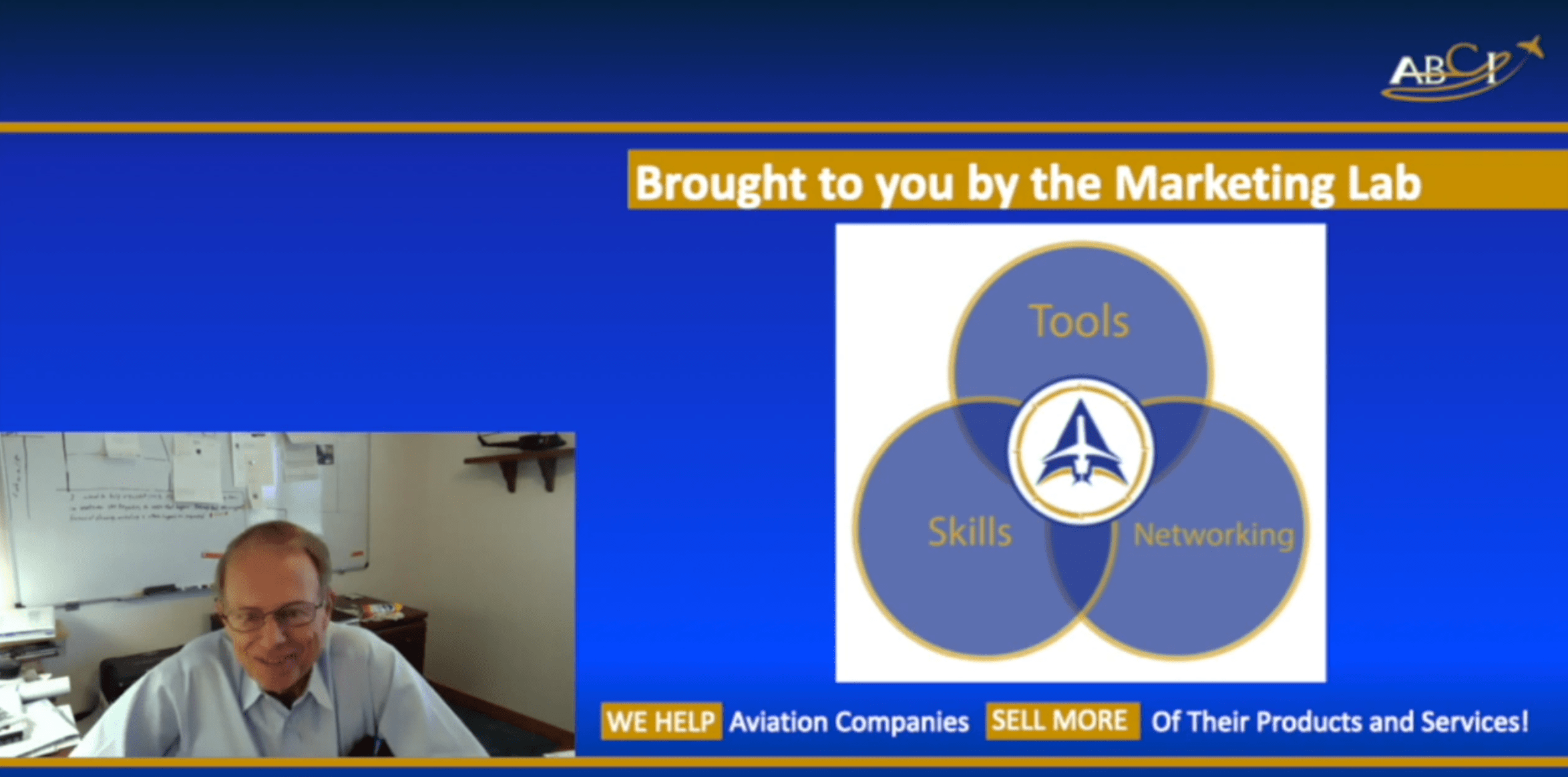
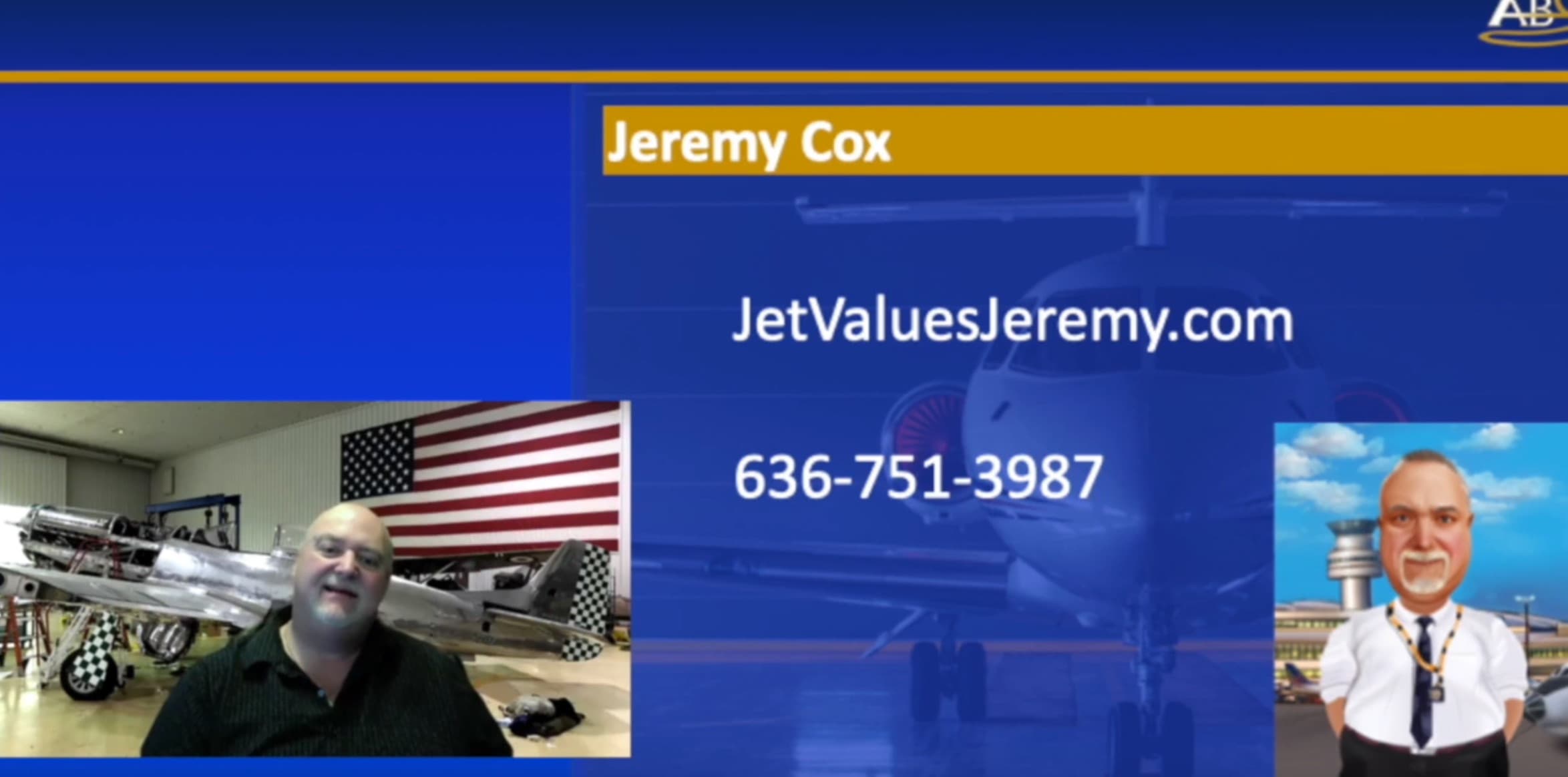
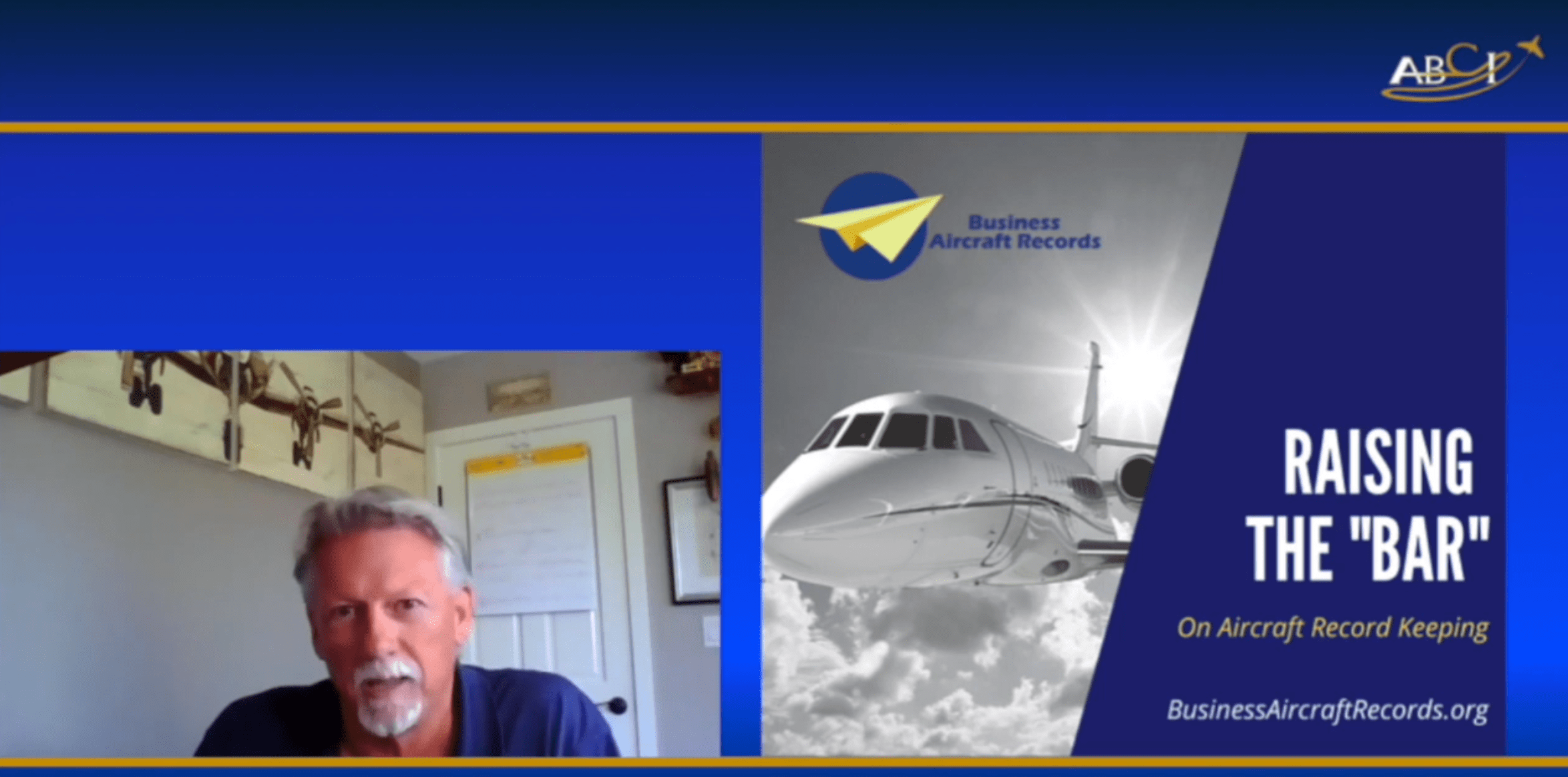
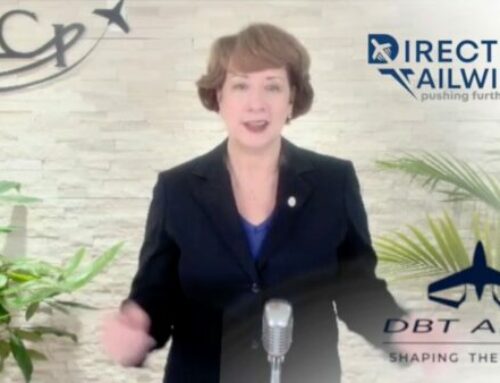
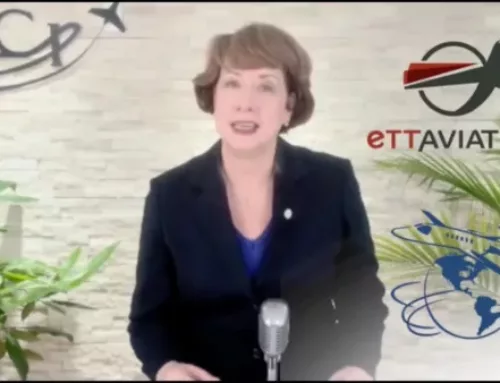
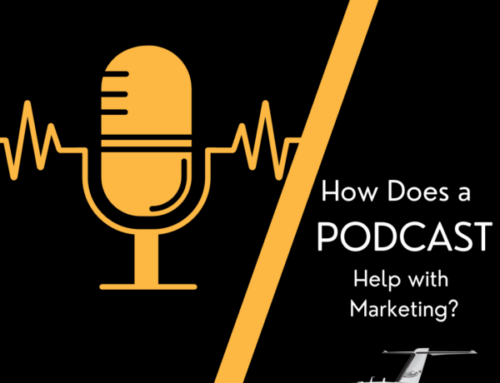
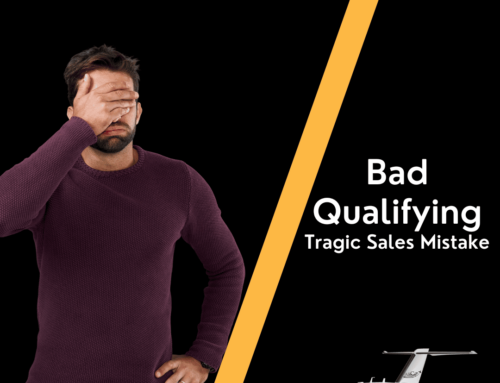

Leave A Comment